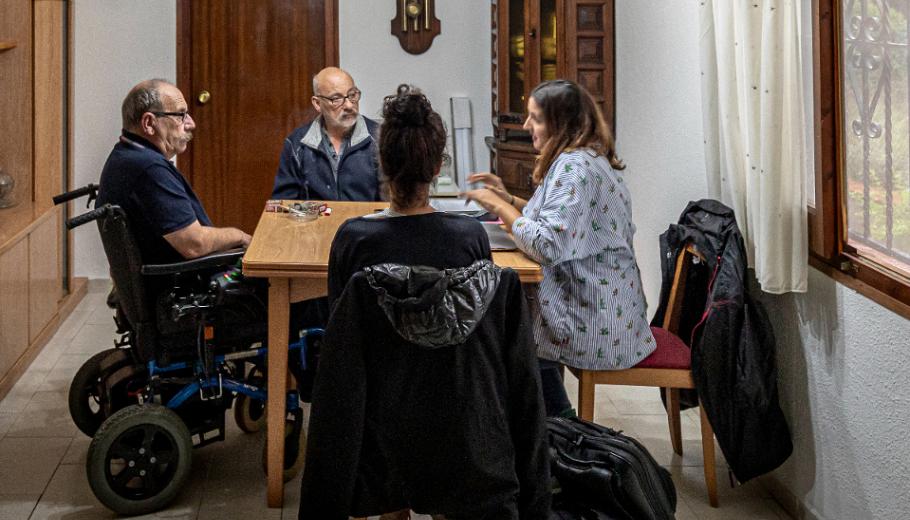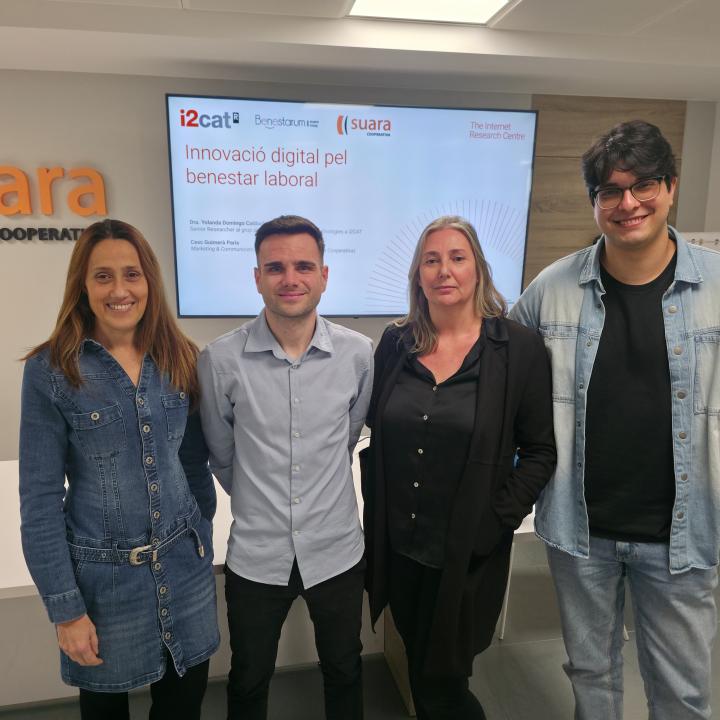Does optimizing care for people, both from the perspective of the administration and from the perspective of the person themselves, involve putting the person at the center and taking a holistic view of care?
For example, a child with special needs, such as autism, requires medical support, but also specialized social and educational care. How emotional support services work in partnership with schools and communities to address the rise in mental health problems among adolescents.
In all these cases, the integration of social and health services demonstrate the importance of addressing the complex needs of people at different stages of life in a more effective way, guaranteeing comprehensive care that considers not only medical aspects, but also emotional, social , economic and community.
This comprehensive social and health perspective must be carried out from a holistic conception in which people from various fields such as health, social work, social education, social innovation must intervene, while at the same time involving their closest environment as the nucleus of coexistence and the neighbors or others linked to social action such as entities, associations or organizations.
It is essential that this care model places the person being cared for at the center, who must assume a leadership role, so they must be the one to make decisions about their life project according to the moment or process they are in. At Suara Cooperativa we are committed to a model of support with People Who Decide and, therefore, who are the true protagonists of everything that encompasses their reality according to their health situation, but also social, relational, economic, life model, beliefs, thoughts, culture, sexual orientation or gender identity.
For this reason, it is also necessary that those people who reside in resources such as residences or foster care homes can receive this health care in the spaces where they live. Until now, for example, workers in Primary Care Centers only went to the homes of people in a situation of dependency who lived at home, but not those who were in residences who, despite also living a physical and cognitive deterioration as a result of an aging process, he had to travel to his CAP.
A reality that wants to be resolved with the integrated social and health care plan in the residences, announced last November by the Ministers of Health, Manel Balcells, and the Minister of Social Rights, Carles Campuzano, through which CAP professionals will offer their services in residential centers, since these become considered the usual home of the people who live in them. This plan, which is expected to be rolled out throughout 2024, also recognizes the vital social function of the residences and their workers when it comes to accompanying people who are often in the last stretch of life. his life.
A good example of how this social and health perspective is being integrated is in the Barnahus (children's house in Icelandic), for children and adolescents who are victims of sexual assault. These are friendly and safe environments, in which all public administration departments involved in the case are coordinated under one roof, as well as workers from different areas such as health, social education, social work, the judiciary or of the police force for offering comprehensive social and health care to the victim. In this way, as Suara Cooperativa confirms in the Barnahus it manages, it prevents them from having to go to the hospital or from having to go to different spaces to testify before various people linked to criminal proceedings.
This way of doing things is not new for Suara Cooperativa and it is how it works in each of its services, especially those in which it treats people in vulnerable situations. In this context, for example, in the different resources that we manage for people experiencing homelessness, we not only offer a roof or a meal, but we work to recover their self-esteem, overcome the traumatic experiences they have experienced while ensuring their safety. emotional, psychological and physical well-being with the intention of starting a process of empowerment to overcome those adversities that led her to live on the streets. A process that, although each person decides how and at what pace they want to live it, has common objectives: to offer stability that favors their professional and social insertion, as well as to recover their relational network or weave a new one.
Suara Cooperativa has been working in social action for 40 years and alongside people with very diverse realities: childhood in sheltered resources, young people with migratory processes, women victims of sexist violence, families in vulnerable situations, people excluded from the world of work, or others. , from society to experience an episode of homelessness or penitentiary confinement, people in aging processes, physical and/or cognitive deterioration, situations of dependency or with mental health problems. A range of people with very diverse experiences, situations, needs, beliefs, origins and identities; who must be accompanied by putting them at the center of their vital projects and with a holistic view that incorporates all areas of their life such as health, social, economic, cultural, relational and the immediate environment.
For this reason, on World Health Day, at Suara Cooperativa we defend that the health and well-being of people goes beyond health: it is inseparable from the social situation of each person, which in turn must be the true protagonist. of his life process. At Suara Cooperativa People Decide, and we decide to walk by their side with this comprehensive or holistic view.
Suara Cooperativa




